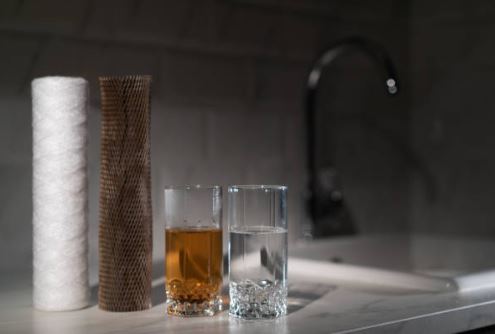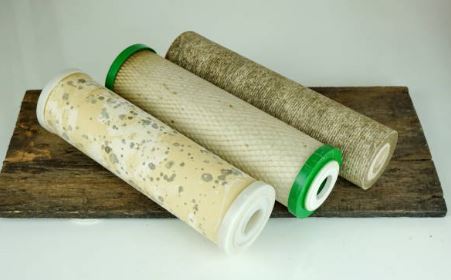Filtered Water: A Guide to Better Hydration
 Introduction
Introduction
In today’s fast-paced world, staying hydrated is crucial for maintaining optimal health and well-being. Water is an essential element that our bodies require to function properly. However, not all water sources are equal when it comes to purity and safety. In this article, we will explore the importance of filtered water, its benefits, and why it’s a superior choice for your daily hydration needs.
Table of Contents
- Understanding the Need for Filtered Water
- The Importance of Clean Water
- Contaminants in Tap Water
- The Benefits of Filtered Water
- Improved Taste and Odor
- Removal of Harmful Impurities
- Healthier Minerals Retention
- Types of Water Filtration Methods
- Activated Carbon Filters
- Reverse Osmosis Systems
- Distillation Process
- Choosing the Right Water Filter for You
- Assessing Your Water Quality
- Considering Budget and Convenience
- Environmental Impact
- Installing and Maintaining Your Water Filter
- DIY Installation Guide
- Regular Filter Replacement
- The Environmental Impact of Filtered Water
- Reducing Plastic Waste
- Lowering Carbon Footprint
- Filtered Water vs. Bottled Water
- Environmental Considerations
- Cost-Effectiveness
- Filtered Water for Cooking and Drinking
- Enhanced Flavor in Culinary Dishes
- Healthier Hydration for Your Family
- How Filtered Water Benefits Your Skin and Hair
- Reducing Exposure to Harsh Chemicals
- Nourishing Effects on Skin and Hair
- The Impact of Filtered Water on Home Appliances
- Extending the Lifespan of Appliances
- Reducing Mineral Buildup
- The Importance of Filtered Water in Workplace Productivity
- Enhanced Focus and Cognitive Function
- Encouraging Healthy Habits
- Filtered Water for Pets
- Health Benefits for Your Furry Friends
- Preventing Waterborne Illnesses
- Traveling with Filtered Water
- Portable Filtration Options
- Safe Hydration Anywhere
- Debunking Common Myths about Filtered Water
- Myth: Tap Water Is Safe
- Myth: All Filters Are the Same
- Conclusion
- Embracing a Healthier Choice
- Making a Difference, One Glass at a Time
Filtered Water: A Necessity for Health and Sustainability
Introduction
In our daily lives, we often take for granted the importance of water and how it impacts our overall health. However, not all water is created equal, and the quality of the water we consume can significantly impact our well-being. Filtered water, in contrast, to tap water or bottled water, provides a superior choice that offers numerous benefits for both our health and the environment.
Understanding the Need for Filtered Water
The Importance of Clean Water
Water is the essence of life. Our bodies rely on it to carry out essential functions, such as regulating body temperature, aiding digestion, and transporting nutrients. Ensuring that the water we drink is clean and free from contaminants is paramount to maintaining good health.
Contaminants in Tap Water
Unfortunately, tap water can contain various impurities such as chlorine, lead, bacteria, and pesticides. While municipal water treatment plants aim to provide safe water, there’s always a chance that some contaminants may still be present. Filtered water, on the other hand, goes through an additional purification process, effectively removing harmful substances and ensuring a higher level of purity.
The Benefits of Filtered Water
Improved Taste and Odor
One of the primary benefits of filtered water is the improved taste and odor. Tap water often carries a noticeable chlorine taste or an earthy smell, which can be unappealing. By filtering out these elements, filtered water tastes fresh and clean, making it more enjoyable to drink.
Removal of Harmful Impurities
Filtered water systems are designed to remove or reduce a wide range of contaminants, including heavy metals, bacteria, viruses, and industrial pollutants. This purification process ensures that the water you consume is free from harmful substances that could otherwise impact your health negatively.
Healthier Minerals Retention
While filtering out harmful contaminants, a good filtration system ensures that essential minerals, such as calcium and magnesium, remain in the water. These minerals are vital for your body’s health and contribute to bone strength and overall well-being.
Types of Water Filtration Methods
Water filtration systems use various methods to purify water. The most common ones include:
Activated Carbon Filters
Activated carbon filters are known for their ability to remove chlorine, volatile organic compounds (VOCs), and some chemicals from the water. They also improve taste and odor, making them a popular choice for households.
Reverse Osmosis Systems
Reverse osmosis is a more advanced filtration method that removes a wide range of contaminants by forcing water through a semi-permeable membrane. This process ensures exceptionally pure water, suitable for those with specific health concerns.
Distillation Process
Distillation involves boiling water to produce steam and then condensing it back into liquid form. This method effectively removes impurities, leaving behind clean water. However, it’s not as efficient as other filtration methods.
Choosing the Right Water Filter for You
Selecting the right water filter depends on various factors, including:
Assessing Your Water Quality
Before choosing a water filter, it’s essential to determine the quality of your water. You can conduct a water test or check with your local water provider for a water quality report.
Considering Budget and Convenience
Different filtration methods come with varying costs and maintenance requirements. Consider your budget and the convenience of filter replacement before making a decision.
Environmental Impact
Choosing a water filter also involves considering its environmental impact. Opt for filters that are durable, long-lasting, and produce minimal waste.
Installing and Maintaining Your Water Filter
DIY Installation Guide
Many water filters come with easy-to-follow installation instructions, allowing you to set up the system yourself. However, if you’re unsure, it’s best to seek professional help to ensure proper installation.
Regular Filter Replacement
To maintain the effectiveness of your water filter, regular filter replacement is necessary. Follow the manufacturer’s recommendations to keep your filtered water clean and safe.
The Environmental Impact of Filtered Water
Reducing Plastic Waste
By using a water filter, you can significantly reduce the consumption of single-use plastic water bottles, contributing to a healthier planet.
Lowering Carbon Footprint
Filtered water systems consume less energy and produce fewer greenhouse gas emissions compared to the production and transportation of bottled water.
Filtered Water vs. Bottled Water
Environmental Considerations
Bottled water contributes to plastic pollution and takes a toll on natural resources. Opting for filtered water helps combat these environmental issues.
Cost-Effectiveness
Over time, investing in a water filter proves more cost-effective than regularly purchasing bottled water.
Filtered Water for Cooking and Drinking
Enhanced Flavor in Culinary Dishes
Filtered water enhances the taste of your culinary creations, as impurities won’t interfere with the flavors of your ingredients.
Healthier Hydration for Your Family
Providing your family with filtered water ensures they stay hydrated with safe and contaminant-free water.
How Filtered Water Benefits Your Skin and Hair
Reducing Exposure to Harsh Chemicals
Chlorine and other chemicals present in tap water can be harsh on your skin and hair. Filtered water reduces this exposure, leading to healthier skin and hair.
Nourishing Effects on Skin and Hair
The minerals retained in filtered water can have nourishing effects, promoting healthy skin and shiny hair.
The Impact of Filtered Water on Home Appliances
Extending the Lifespan of Appliances
Using filtered water in appliances such as kettles and coffee makers can prevent mineral buildup and prolong their lifespan.
Reducing Mineral Buildup
Filtered water reduces the presence of minerals that cause limescale, extending the life of your household appliances.
The Importance of Filtered Water in Workplace Productivity
Enhanced Focus and Cognitive Function
Providing filtered water in workplaces can boost employee focus and cognitive function, leading to increased productivity.
Encouraging Healthy Habits
Promoting the consumption of filtered water encourages healthy hydration habits among employees.
Filtered Water for Pets
Health Benefits for Your Furry Friends
Just like humans, pets benefit from clean and filtered water. It supports their overall health and well-being.
Preventing Waterborne Illnesses
Filtered water ensures that your pets are not exposed to harmful contaminants that could cause waterborne illnesses.
Traveling with Filtered Water
Portable Filtration Options
When traveling, portable water filters offer a convenient way to access safe drinking water, regardless of your location.
Safe Hydration Anywhere
With a portable water filter, you can stay hydrated without worrying about the quality of water available.
Debunking Common Myths about Filtered Water
Myth: Tap Water Is Safe
While tap water undergoes treatment, it may still contain impurities that could affect your health. Filtered water provides an extra layer of protection.
Myth: All Filters Are the Same
Different filtration methods target specific contaminants. Choosing the right filter ensures the removal of the impurities present in your water.
Conclusion
Switching to filtered water is a simple yet powerful step towards a healthier and more sustainable lifestyle. By opting for filtered water, you provide your family, pets, and even appliances with clean and safe hydration. Additionally, you actively contribute to reducing plastic waste and minimizing your carbon footprint, making a positive impact on the environment.
FAQs
- Does filtered water taste better than tap water?
- Yes, filtered water often tastes fresher and cleaner than tap water, as it removes undesirable odors and flavors.
- Can I install a water filter myself?
- Many water filters come with DIY installation guides, but if you’re unsure, it’s best to seek professional assistance.
- Are all water filters the same?
- No, different water filters use various methods to target specific contaminants, so it’s essential to choose the right one for your needs.
- Can filtered water benefit my pets?
- Absolutely! Filtered water provides health benefits for your pets, just as it does for humans.
- Are portable water filters effective?
- Yes, portable water filters are designed to provide safe drinking water on the go, making them effective for travelers and outdoor enthusiasts.
- Need to contact a plumber then call us at 0409 364 858 or contact us here
Here are some great reading about plumbing right here.
Tradelink And or Reece’s are a good place to start for fine tapware.

